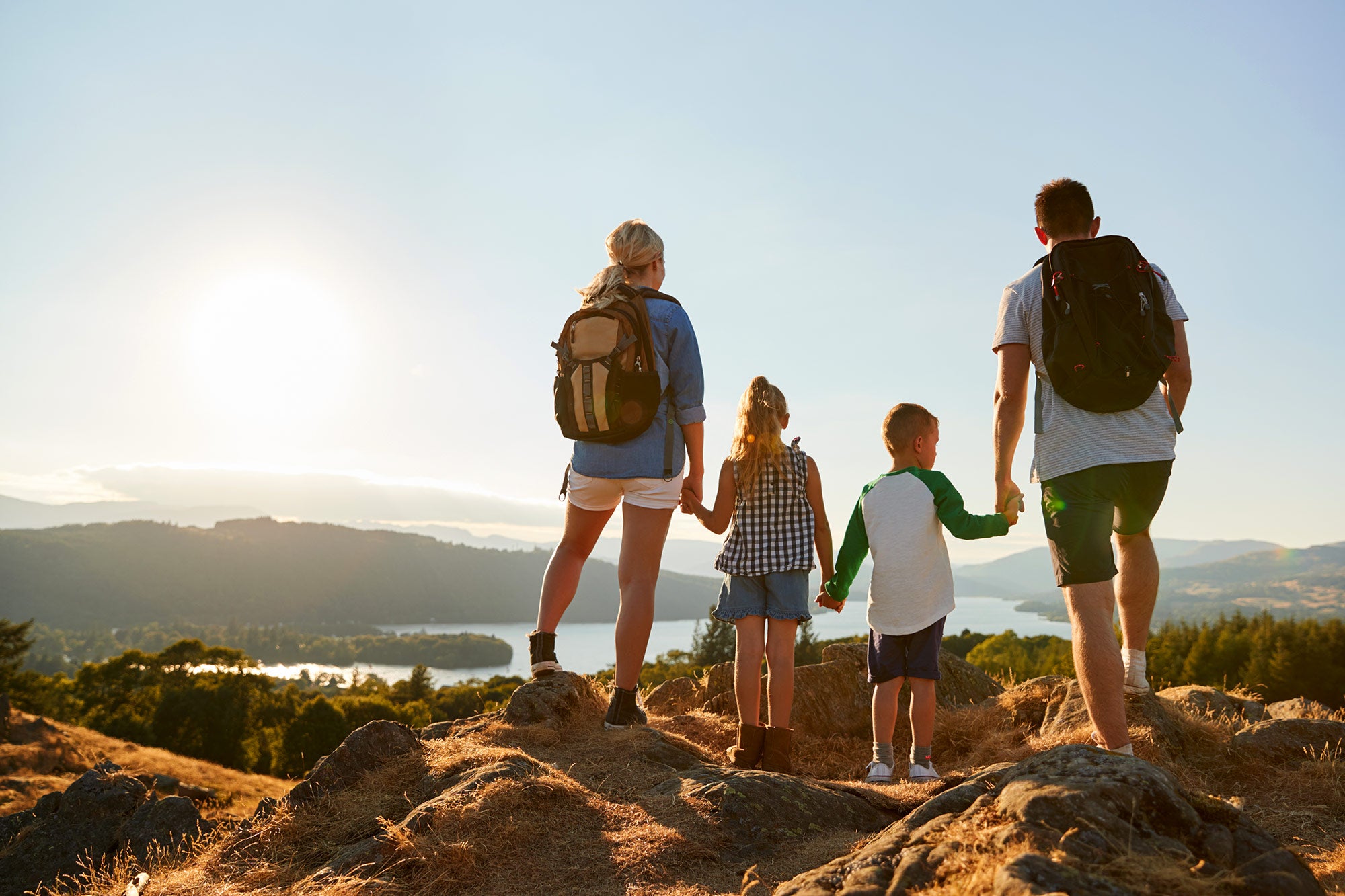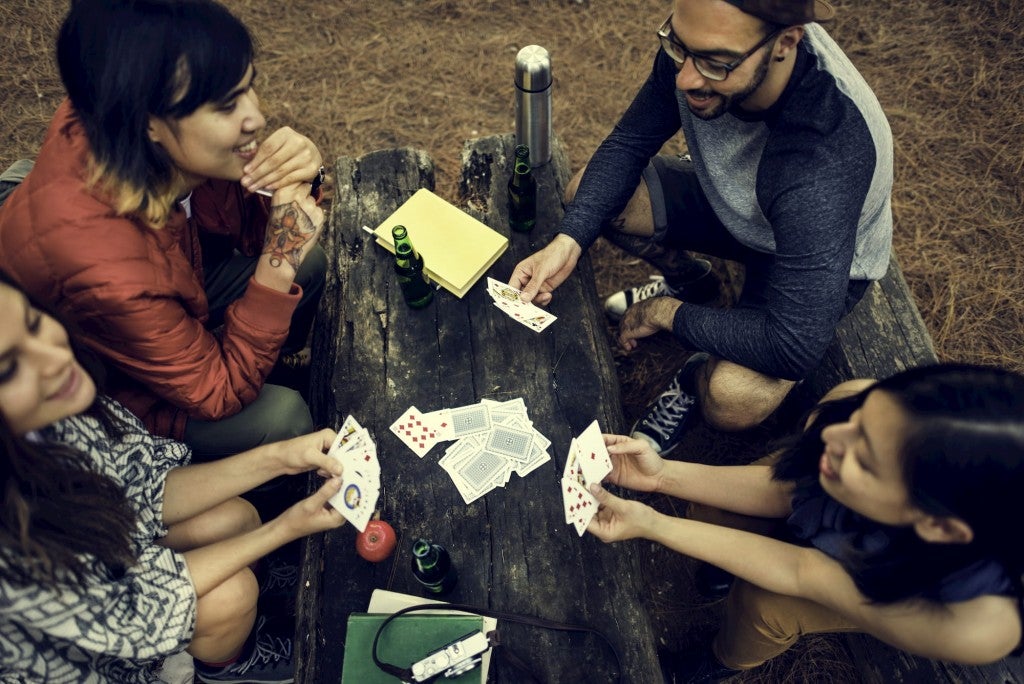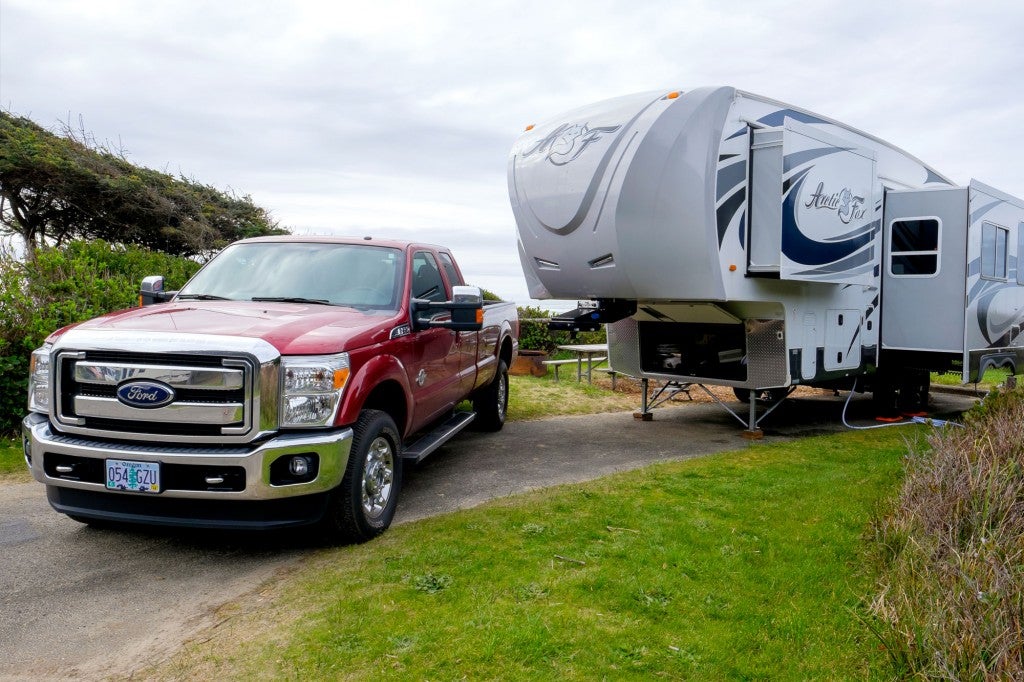There are five places in the world where people live longer than anywhere else—well into their 90s and 100s. Not only are they beating the odds on longevity, but they also live better. They remain active and have a much lower rate of chronic diseases like cancer and Alzheimer’s. Author and researcher Dan Buettner identified these regions and called them Blue Zones. They are: Icaria, Greece; Loma Linda, California; Nicoya Peninsula, Costa Rica; Okinawa, Japan; and Sardinia, Italy.
These places are very geographically diverse, but they all share common traits—it’s the behavior and lifestyles of people in these places that set them apart from the rest of the world.
The great news for us? Some of the same characteristics that produce centenarians in blue zones are also shared by people who camp.
Lessons From the Blue Zone: 5 Reasons Camping May Lead to a Longer Life
If you need more reasons to get outside, these habits of blue zone locals are common behaviors when camping, too. Perhaps we should all go camping this weekend? And next?
Moving Naturally
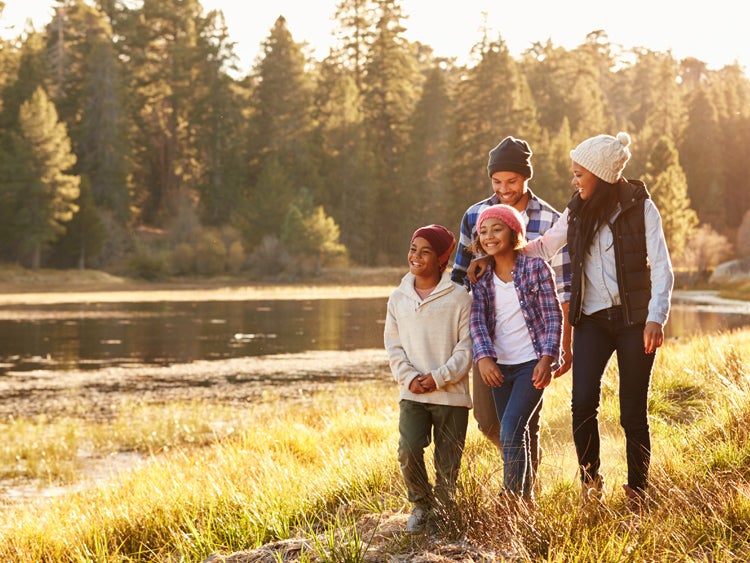
In the Blue Zones, if people want to get somewhere, they walk, usually over five miles per day. No one is training for marathons or getting ripped in a gym, but they’re doing activities they enjoy and moving their bodies every day.
An average day of camping with my family goes something like this: We get up, walk to the bathroom, walk back, make coffee, eat some fruit. We make a fire, cook up some eggs and bacon and clean up. We may take a walk over to the lake or hike the dunes. We head to the playground with the kids, then maybe we take a bike ride around the park. Later we’ll get out the mitts and play catch.
We’re always moving when we’re camping, not just for exercise, but for purpose. Now if we can just figure out how to incorporate this into our daily life when we’re not camping.
Spending time with groups of people
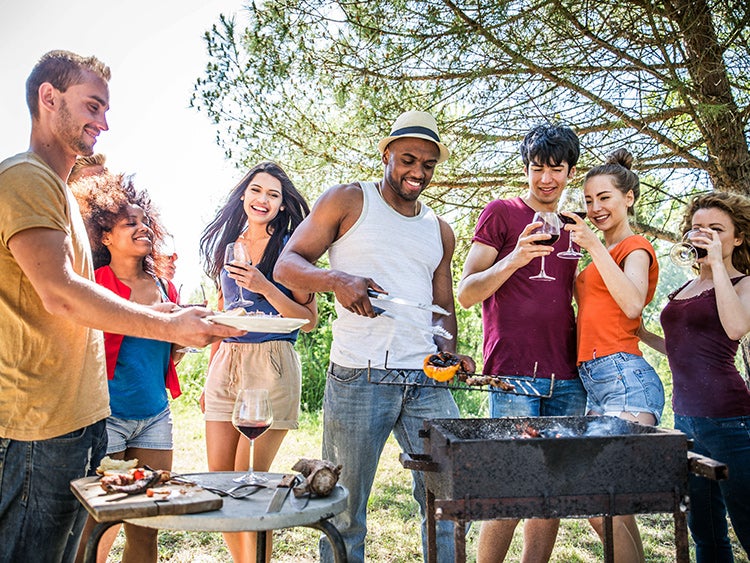
Research has found that people in the Blue Zones are more engaged and helpful to each other and also have stronger support systems. Sardinians, in particular, are pretty geographically isolated, so they entertain themselves and socialize often. This includes meeting in the afternoons to drink red wine.
When my parents took me camping as a kid, there would be a pack of us cousins. We’d roam from the camp store to the playground, then back to the tent for snacks and to grab our bikes, taking a spin around the campground. We’d pick up other kids as we went; making friends was way easier than pitching our pup tent.
As adults, it’s the same. I’ve seen families come back year after year at the same time to meet up with other families that they met at the campground. I’ve been invited into campfire singalongs and volleyball games, potluck dinners and euchre tournaments. What is it about camping that makes it such a friendly environment? My theory is that people are happier when they camp and that people who camp are more down-to-earth. This explains why you don’t get the same friendliness vacationing at a hotel. Unfortunately, the more our society becomes enmeshed in looking at screens, the less we interact with our community and the more isolated and unhealthy we become.
Being close to family
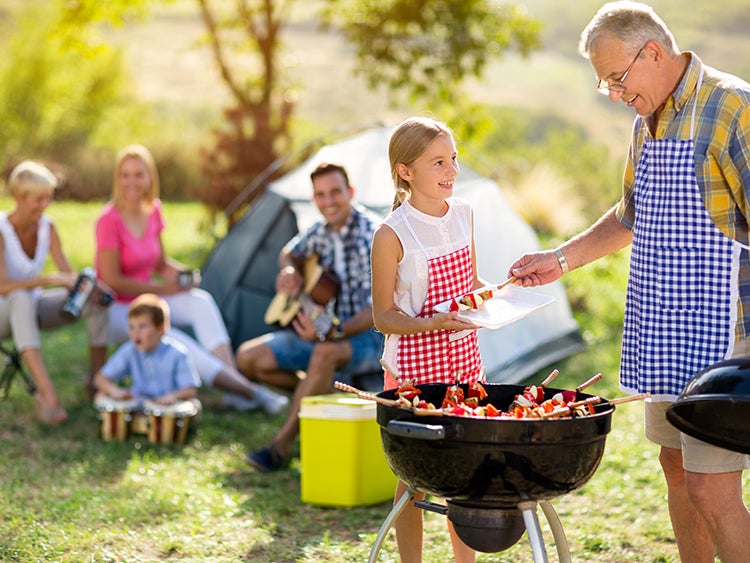
Family is foremost when it comes to the Blue Zones, and this extends to the elderly, who are always a part of day-to-day life. When they need help, they turn to family instead of nursing homes or care centers. A combination of family duty and genuine affection for their older counterparts ensures that, well into their 80s, these people have a sense of purpose. Family members of all ages care for one another and invest time and love.
Growing up, my nana, in her 60s, would gather all the grandkids (plus any other kids who were hanging around) and make us her famous donuts in the deep fryer. My grandpa would take us to gather firewood in the forest, making one of us take off our sock so he could use his old rock-in-the-sock trick to get dry branches off the trees, where he would make us laugh so hard we cried. Later he would play guitar well into the night while everyone sang along and shouted out what we wanted him to play next. The point is we had fun together, as a family.
We still do. It’s not uncommon to see three generations in a group of campsites. Families and friends gather for a fun weekend. There are no distractions of work or jobs around the house, so the focus becomes quality time. When there is work to do, families pitch in and get it done, and when it rains, we stay in and play cards.
Reducing stress
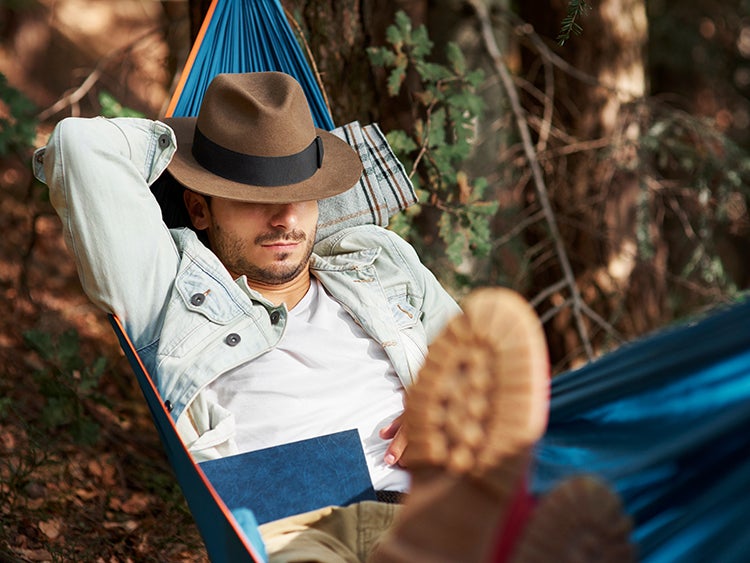
Stress is one of the biggest causes of inflammation, and inflammation is associated with disease. It’s no wonder that cultures that have learned how to beat stress live longer. It’s not that they don’t experience stress—they do. But they’ve figured out how to let it go. Naps are a regular part of the day for Ikarians. The Seventh-day-Adventists in Loma Linda pray. Sardinians share a bottle of wine. They all spend more time in nature, proven to reduce stress levels.
Sound familiar? Am I the only one who feels the stress melt away when I get my camp all set up and sit in my folding chair in the dappled shade of a tree? So don’t feel guilty whiling away the afternoon reading in the hammock, or sharing some rosé with friends at wine’o’clock. It’s helping you live longer.
Eating beans
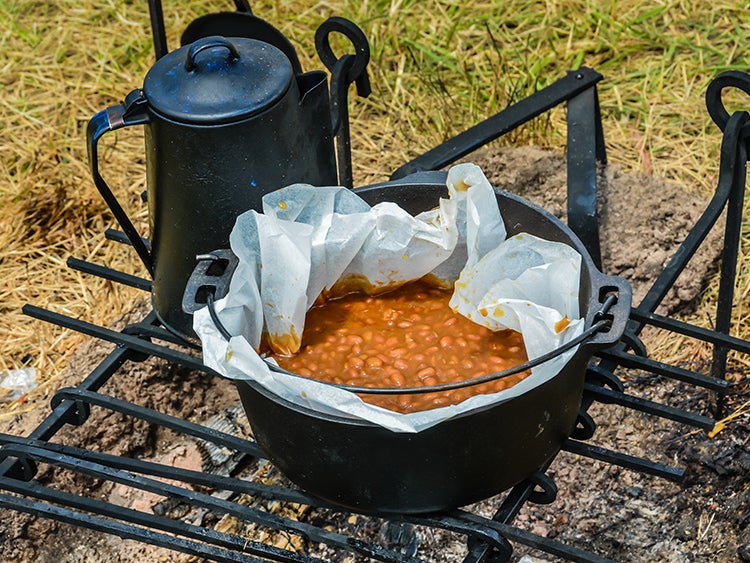
Yes, even the consummate (humble) camping food—beans—is included on the list of common characteristics of the Blue Zones. In fact, beans are a main ingredient in a mostly plant-based diet—so we’ll have to leave the franks out—along with whole grains, nuts and other whole foods.
So you see how the camping lifestyle and the Blue Zone lifestyle line up. Campers are outside moving, spending time with friends and family, eating real food and relaxing. Want to live well into your 90’s? The answer might be as simple as camping more.
The Dyrt is the only camping app with all of the public and private campgrounds, RV parks, and free camping locations in the United States. Download now for iOS and Android.Popular Articles:
Articles on The Dyrt Magazine may contain links to affiliate websites. The Dyrt receives an affiliate commission for any purchases made by using such links at no additional cost to you the consumer.

